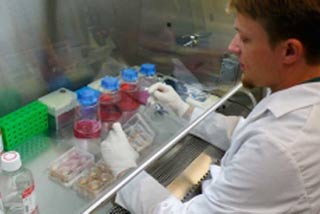
The team seems to have inserted the nuclei of adult skin cells from patients with type 1 diabetes into unfertilized donor oocytes. In the process they attained embryonic stem cells from individual subjects. The patient-specific stem cells can then be transfixed to supplant impaired or infected cells in individuals with diabetes and other conditions, without those being rejected by the immune system of the patient.
“The specialized cells of the adult human body have an insufficient ability to regenerate missing or damaged cells caused by many diseases and injuries. But if we can reprogram cells to a pluripotent state, they can give rise to the very cell types affected by disease, providing great potential to effectively treat and even cure these diseases,” explained Dr. Egli, NYSCF senior scientist in the research.
In this analysis that took place for a span of 3 years, the investigators appeared to successfully engineer skin cells to shift to the pluripotent state. They show that the shift of nucleus from an adult skin cell into an oocyte without discarding the oocyte nucleus apparently leads to transformation of the adult nucleus to the pluripotent form. Embryonic stem cells are then obtained from the oocyte comprising the person’s genetic material.
As part of the research, skin cells from patients with type 1 diabetes and a control group were reprogrammed to attain pluripotent stem cells. The latter seemingly have the capability of universal tissue development and they could also be utilized for the creation of beta cells to produce insulin.
Those suffering from type 1 diabetes do not have insulin-producing beta cells that leads to inadequate insulin and elevated blood sugar levels. Synthesizing beta cells from stem cells in the process of transplantation may play an essential role in treating type 1 diabetes.
These pluripotent cells also contain a copy of the chromosome from the oocyte causing an unusual rise in chromosomes. These cells are therefore not ready for remedial use. The researchers will now try to understand the role of the oocyte chromosome that will help them develop patient-specific stem cells that possess just the person’s DNA.
The findings are reported in the journal Nature.
